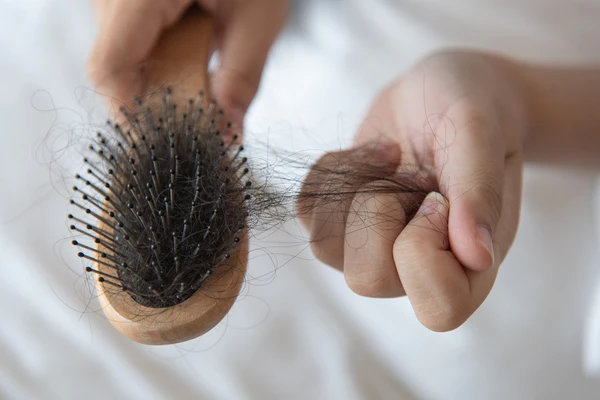
Experiencing hair loss can be really tough, and it can happen to anyone, regardless of their gender or age. Many people like to try natural and home remedies before turning to commercial products and medical treatments for hair loss. Luckily, nature offers a variety of powerful ingredients that can nourish the scalp, strengthen hair follicles, and support the growth of healthy hair. Today, we’re going to discuss a few helpful home remedies for hair loss that you can easily add to your hair care routine.
Home Remedies for Hair Loss
Massage with Essential Oils
Scalp massage with essential oils is a really simple and effective home remedy for hair loss. Did you know that essential oils such as rosemary, peppermint, and lavender have been found to enhance blood circulation to the scalp? This increased blood flow can actually promote hair growth. Pretty cool, right? You can dilute a few drops of your favorite essential oil in a carrier oil like coconut or jojoba oil. After that, just give your scalp a gentle massage with the mixture for a few minutes before shampooing.
Aloe Vera Gel
Aloe vera is well-known for its ability to soothe and moisturize the skin, but did you know that it can also be a powerful solution for hair loss? You can apply fresh aloe vera gel directly to your scalp and hair by gently massaging it in. You should leave it on for approximately 30 minutes and then rinse it off using lukewarm water. Aloe vera is known for its ability to balance the pH of the scalp, reduce inflammation, and promote healthy hair growth.
Onion Juice
Onion juice may not sound very appealing, but it has actually been proven to be effective in promoting hair growth and preventing hair loss. Onions contain sulfur, which increases collagen formation and strengthens the hair follicles. You can make a homemade onion juice by blending an onion and then applying it to your scalp. Leave it on for about 15-30 minutes and then rinse it off with a gentle shampoo. For the best results, make sure to repeat this process several times a week.
Coconut Milk
Coconut milk is a great hair loss treatment since it’s full of lipids, vitamins, and minerals that feed the scalp and hair. You can extract fresh coconut milk and then apply it directly to your scalp, gently massaging it in. Make sure to keep it on for at least 30 minutes before you rinse it off with lukewarm water. In addition to strengthening the hair shaft and hydrating the scalp, coconut milk encourages the growth of healthy hair.
Green Tea Rinse
Green tea is full of antioxidants that can stimulate hair follicles and encourage hair growth. Make yourself a cup of green tea and wait for it to cool down completely. You can use it as a final rinse after you shampoo and condition your hair. Drinking green tea can be beneficial for reducing DHT (dihydrotestosterone), a hormone that is linked to hair loss. Additionally, it can help nourish the scalp, leading to healthier and stronger hair.
Egg Mask
Eating eggs can provide your hair with a good amount of protein, vitamins, and minerals, which are beneficial for nourishing the hair and supporting its growth. You can beat an egg and then apply it to your scalp and hair, making sure to focus on the roots. You should leave it on for approximately 20 minutes before rinsing it off with cold water and a mild shampoo. Using egg masks can be beneficial for your hair. They help to strengthen the hair follicles, reduce breakage, and improve the overall health of your hair.
Healthy Diet and Lifestyle
To stop hair loss and encourage hair growth, it’s essential to maintain a balanced diet and lifestyle in addition to these home cures. Ensure you’re getting all the necessary nutrients for healthy hair, such as protein, iron, vitamins A and E, and omega-3 fatty acids. Drink enough water to stay hydrated, find ways to manage stress, and try not to use too much heat when styling your hair or use harsh treatments.
Frequently Asked Questions Home Remedies for Hair Loss
1. Are home remedies effective for treating hair loss?
Home remedies can be effective for treating certain types of hair loss, especially those caused by factors like poor scalp health, dryness, or hormonal imbalances. While they may not work for everyone, many people find relief and improvement in their hair condition through natural remedies.
2. How long does it take to see results from home remedies for hair loss?
The timeline for seeing results from home remedies for hair loss varies depending on the individual, the severity of the hair loss, and the chosen remedy. Some people may notice improvements within a few weeks of consistent use, while others may require several months to see significant results. Patience and consistency are key when using home remedies.
3. Can I use multiple home remedies for hair loss at the same time?
Yes, you can combine multiple home remedies for hair loss to create a customized treatment plan that addresses your specific needs. However, it’s essential to be cautious and avoid overloading your scalp with too many treatments, as this can lead to irritation or adverse reactions. Start with one or two remedies and gradually introduce others as needed.
4. Are there any side effects associated with home remedies for hair loss?
In general, home remedies for hair loss are considered safe and have minimal side effects when used as directed. However, some people may experience allergic reactions or sensitivities to certain ingredients. It’s essential to perform a patch test before using any new remedy and discontinue use if you experience any adverse reactions.
5. Can home remedies for hair loss regrow hair on bald spots?
Home remedies may help stimulate hair growth and improve the overall health of the scalp, but their effectiveness in regrowing hair on bald spots depends on various factors, including the underlying cause of the hair loss and the extent of follicle damage. While some people may experience regrowth, others may not see significant results.
6. How often should I use home remedies for hair loss?
The frequency of use for home remedies for hair loss depends on the specific remedy and your hair’s condition. Some remedies, such as scalp massages or green tea rinses, can be used daily, while others, like onion juice or egg masks, may be applied a few times a week. Follow the instructions provided with the remedy and adjust based on your scalp’s response.
7. Can home remedies for hair loss replace medical treatments?
While home remedies can be beneficial for improving scalp health and promoting hair growth, they may not be suitable for treating certain types of hair loss, such as pattern baldness or alopecia areata. In such cases, it’s essential to consult a healthcare professional for proper diagnosis and treatment recommendations. They may prescribe medical treatments or procedures tailored to your specific condition.
Conclusion
Dealing with hair loss can be tough, but there are ways you can tackle it at home and make changes to your lifestyle. By doing so, you can take proactive measures to regain a full and healthy head of hair. If you enjoy scalp massages with essential oils, nourishing masks with coconut milk, or using green tea rinses in your hair care routine, there are many natural options to help prevent hair loss and encourage hair growth. Try out different remedies to see which ones work best for you, and don’t forget to be patient. Consistent care and dedication are important for achieving long-lasting results.

Leave a Reply